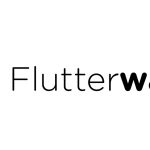As Nigeria progresses in its mission to make financial services more accessible, efficient, and cohesive, traditional financial institutions are introducing digital options and the number of fintech companies is increasing. Currently, there are more than 200 fintech firms in Nigeria, and established companies are expanding to include financial services. Amidst this burgeoning fintech scene, the Nigerian embedded finance platform, Anchor, is faced with an essential challenge: determining the most effective way to educate the market about the comprehensive benefits of fintech solutions.
“Despite the widespread discussion about fintech, not everyone grasps what it takes to develop and manage compliant financial products,” said Segun Adeyemi, CEO of Anchor, during a call with Bendada.com. “Even something as seemingly straightforward as transferring money can have various configurations. It’s often just labeled as banking or payments, but the reality is more complex.”
Seven months following its announcement of a $2.4 million seed funding, Anchor is addressing this educational gap by launching two initiatives, Compass and On Deck, aimed at reinforcing its goal to become the go-to platform for creating and launching financial services.
Compass, which started earlier in the year, is a monthly newsletter that offers insights into the fintech sector. Expanding on this, On Deck with Anchor is a new series on YouTube featuring concise, informative videos that break down fintech basics. The series’ informal approach, using real-life scenarios and discussions, makes it engaging and accessible.
Omolara Dada, the Growth and Marketing Lead at Anchor, designed these initiatives with the intention of catering to the diverse preferences of their audience, which includes entrepreneurs, operators, regulators, vendors, and investors.
Understanding that some people favor reading over watching videos, and vice versa, shaped their strategy. “We view the On Deck videos as introductory explainers on fintech, whereas Compass is aimed at providing insights to help people navigate the financial services sector,” Omolara explains. The core topics covered in On Deck span from Banking as a Service and embedded finance to regulations, compliance, and various roles within fintech. Omolara notes that they plan to gradually include more specialized yet essential topics to deepen the audience’s comprehension and engagement in the fintech industry.
These measures mark a positive advancement for Anchor, which currently serves over 70 enterprises including Bujeti, Waza, Spark, Cardtonic, Lifebank, Zit.ng, among others.
Following its exceptional performance in 2023, where it handled more than $450 million in transaction volume, Anchor continues to emphasize the importance of financial literacy education to foster growth and promote financial inclusion.
“The common issue I notice is the underestimation of compliance and responsibility,” Adeyemi remarks. “We encounter situations where individuals wish to manage virtual accounts without adhering to the required compliance processes,” he adds. “I usually respond by reminding them that this is a regulated sector that necessitates a thoughtful approach since it involves handling other people’s money.”
Anchor’s team is fully immersed in both educating their audience and expanding the functionalities of their platform. By the end of this year, they plan to introduce a local card issuance feature and develop their credit infrastructure. Looking ahead, Adeyemi highlights that Anchor’s upcoming Global services offering will allow African businesses to tap into USD rails.
Segun emphasizes their commitment: “Our goal is to enable individuals to enhance their confidence and expertise in fintech by using real-life examples and expert insights, making fintech more approachable and comprehensible to everyone.”
To view the premiere episode of “On Deck with Anchor,” click here, and remember to subscribe to their YouTube channel.



